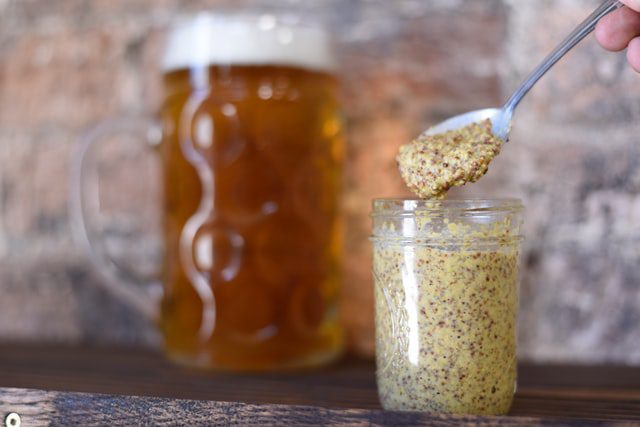
A new study by Dr Ruth Fairchild of Cardiff Metropolitan University, presented today, 4 November 2021, at the European Federation of Food Science and Technology (EFFoST), has found that in pre-diabetic patients, a teaspoon of wholegrain mustard ingested each evening before bed can help reduce blood glucose and/or cholesterol levels.
The study, which was funded by Tracklements, investigated the effects of consuming a daily teaspoon of wholegrain mustard over a 12-week period. It showed that from a total of 42 participants, 86% saw a significant drop in their blood glucose and/or cholesterol level, compared to only 14% who showed no positive response to the Tracklements mustard used in the study.
While blood glucose reductions were observed amongst 24% of participants, a much greater reduction of 46% was found in three participants who were deemed pre-diabetic at the start of the study. Fasting blood cholesterol levels were also statistically significantly reduced in the responders who saw a 10% reduction in their levels, towards the safe upper limit for total cholesterol. This promising downward trend for this high-risk group for cardiovascular disease mirrors a similar cholesterol reduction seen by those following a low-fat diet.
The hypothesis from these findings could be that if the same approach was replicated across the UK, where approximately seven million people are believed to be in a pre-diabetic state, some 525,000 people potentially may benefit. All participants, who were aged between 40-70 years old and either overweight or clinically obese, consumed the mustard either on a small cracker or by itself before bed each evening.
This helped ensure the uptake of the mustard, enhancing its various components and avoiding consumption during a mixed meal. Blood glucose and total cholesterol levels were checked three times: once prior to the start of the study, again at two weeks (to assess any short-term effect) and finally at 12 weeks.
Without exception, all pre-diabetic subjects’ fasting blood glucose levels returned to normal by the end of the study.
Dr Ruth Fairchild, Senior Lecturer at the Zero2Five Food Industry Centre at Cardiff Metropolitan University, who led the study says: “Whilst more recent studies have focussed on using wholegrain mustard as a nutraceutical to reduce blood glucose and cholesterol levels, this is the first time research of this type has been carried out, opening up the possibility for further research into the health benefits of wholegrain mustard amongst pre-diabetic patients. However, until further scientific evidence is presented, we advise caution with regards to those who are already being treated for diabetes who should remain on any prescribed medication.”

| [donate]
| Help keep news FREE for our readersSupporting your local community newspaper/online news outlet is crucial now more than ever. If you believe in independent journalism,then consider making a valuable contribution by making a one-time or monthly donation. We operate in rural areas where providing unbiased news can be challenging. |

















